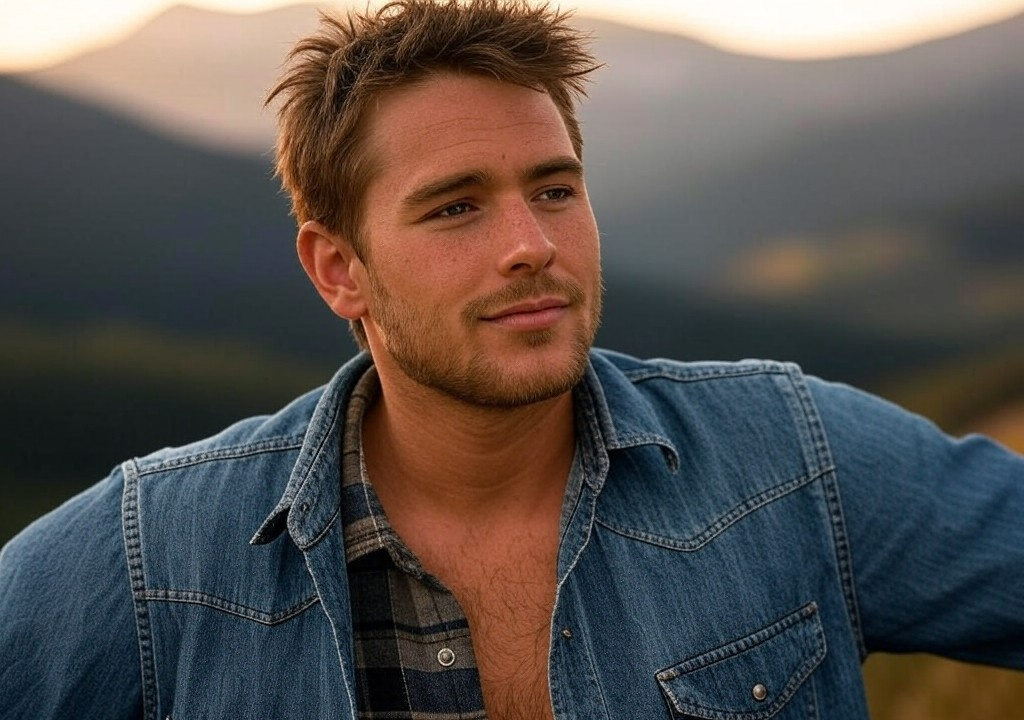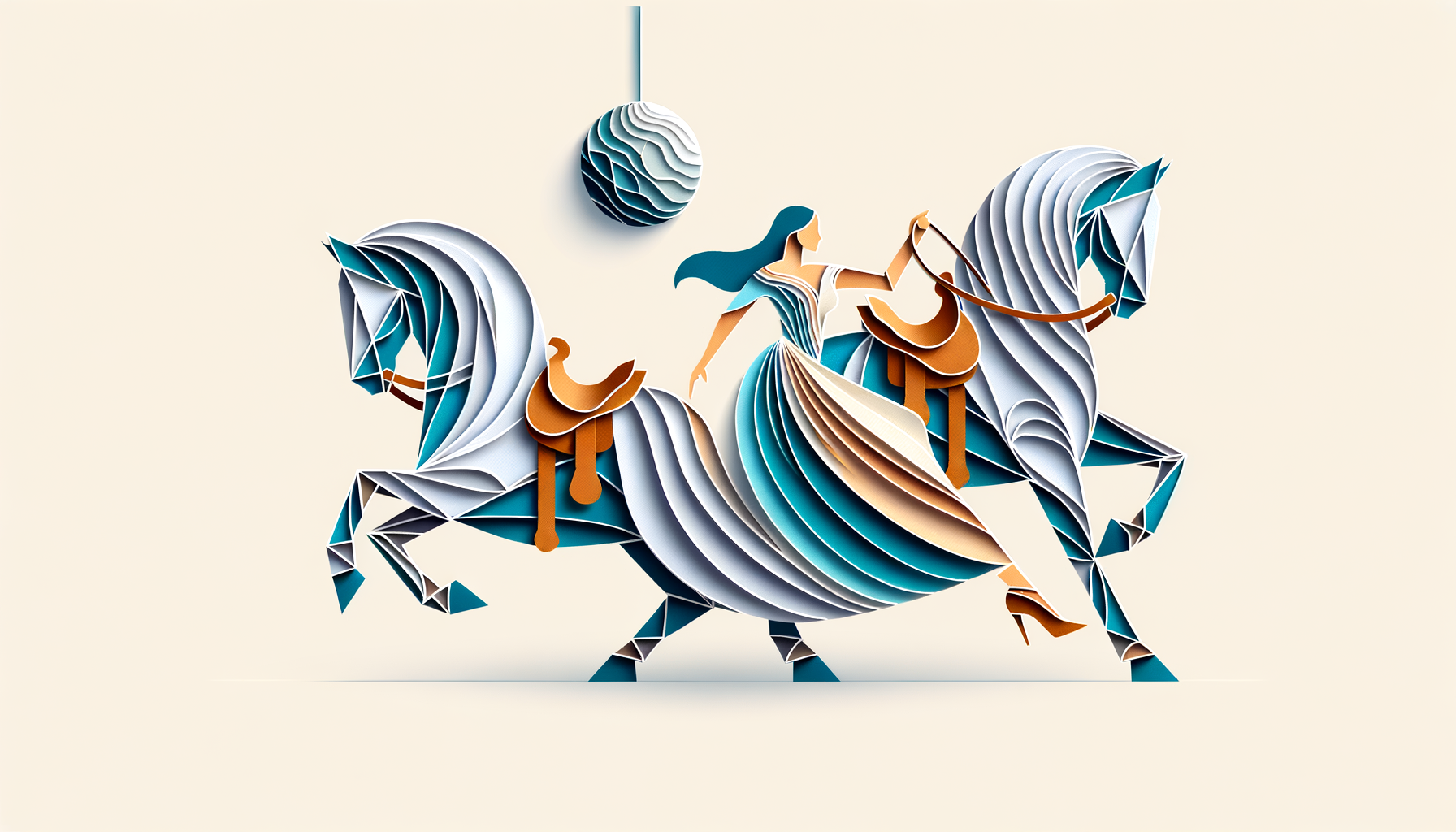It wasn’t until my mid-twenties that I realized life isn’t a solo ride but more of a three-legged race. If you’re lucky, you might find a friend who not only keeps pace with your wild strides but steadies you when you stumble. For me, that friend was Daniel—a 6'2" enigma in Carhartt overalls I first met during an aimless Tuesday at Colorado State. By the time we ran out of reasons to argue the merits of Clint Eastwood’s Unforgiven in our American History elective, I knew he’d be the most important influence on my relationships. Disclaimer: Daniel didn’t provide sage dating advice or introduce me to a future love. What he did do—unconventionally, hilariously, and profoundly—was change the way I see myself.
Spoiler alert: this story involves a horse, a minor existential crisis, and one very awkward potluck.
The Cowboy Philosopher and the Art of Showing Up
It started with a flat tire. I was late for a study group after snagging the front wheel of my bike on an unsuspecting gopher hole. While I was crouching roadside, cursing everything from poorly paved trails to gopher family reunions, Daniel pulled up in his rickety old truck. He didn’t say a word, just tipped his cowboy hat, jumped out, and set to fixing my bike with the efficiency of a guy who grew up elbow-deep in tractor engines.
“Ever think your life’s got the same problem as your bike?” he asked with a smirk, holding the air pump like a philosophical staff.
“What…a slow leak?” I shot back.
“Nope. It just needs someone to show up with the right tools.”
That line should’ve been insufferably corny, but Daniel had this way of delivering one-liners like he’d plucked them threadbare from the western sky. For weeks after, I couldn’t get our conversation out of my head. It wasn’t because of the flat tire or his impromptu sermon. It was because, for once, someone truly, genuinely showed up for me without any pretense or an agenda. That realization stuck to me like burrs on hiking socks: showing up matters, more than we often care to admit.
For the first time, I saw how much of my relationships revolved around half-empty gestures. I’d been phoning it in—agreeing to plans I didn’t intend to keep, nodding distractedly through conversations—and yet expecting authenticity in return. Daniel held up an unvarnished mirror, not by telling me I needed to change, but by living out what I lacked: commitment to the people in my life.
The Potluck Incident: Vulnerability, Table for One
If Daniel could write his own gospel, it might be titled Thou Shalt Always RSVP. He loved community gatherings: fall hayrides, bonfire singalongs, and, most memorably, a neighborhood potluck where my insecurities came home to roost.
That year, I’d recently gone through a breakup that left me questioning whether I even liked people anymore. My social stamina was nonexistent, but Daniel wouldn’t hear of me skipping out. He pulled me aside beforehand, tossing a bag of tortillas my way.
“Show up. Bring the salsa. Simple as that, partner,” he said, flashing a grin. He made it sound so straightforward, like all life’s problems could be solved by dipping chips into guac.
But here’s the truth: walking into that potluck was terrifying. A sea of enthusiastic strangers buzzed around under string lights while I glued myself to the snack table, praying no one would notice my wallflower act. It was Daniel who gave me the nudge—not with words, but just his steady gaze from across the yard as he effortlessly juggled conversations.
His energy rearranged something in me that evening. I learned that vulnerability isn’t about hiding in plain sight; it’s about stepping out, even when you want to turn tail and run. Relationships—platonic, romantic, or anything in between—aren’t built in hiding. That potluck taught me life rewards the brave, or, at the very least, the salsa-deliverers brave enough to show up.
Wild Horses, Wild Hearts
Daniel once said that most people would rather wrestle a bear than their own expectations. Naturally, I tested this theory on an actual horse.
One summer after grad school, he invited me out to his uncle’s ranch for what he called “an air-clearing with saddle therapy.” My skeptical brows shot skyward, but the breakup dust hadn’t fully settled, so I agreed.
Half an hour in, I was ready to fake a spontaneous knee injury just to get back to the barn. The horse—an unpredictable mare named Dusty—wasn’t having any of my attempts to steer. Each time I tugged the reins, she responded with the equine equivalent of “Nah, I’m good.”
Watching me flounder, Daniel called out, “Quit trying to control her. Work with her.”
I didn’t get it at first. I just kept pulling harder on the reins, teeth gritted and ego wounded. But slowly, begrudgingly, I began to loosen my grip. I shifted with her natural rhythm rather than trying to dictate it, and eventually, Dusty and I found something like mutual respect.
Daniel rode up beside me and said, quietly yet pointedly, “That’s life, my friend. Tug too hard, and all you’ll get is resistance. Let go a little, and something amazing might happen.”
Relationships, it turns out, aren’t so different from riding horses. Whether it’s fear, pride, or heartbreak causing you to pull the reins too tightly, the result is the same: you’re only fighting yourself. The magic happens in the give-and-take, the space where trust grows. That day in the saddle didn’t just shift my perspective; it rewrote my entire approach to connection.
The Legacy of a Good Friend
Here’s what I know now, years after Daniel left town to travel the back roads of New Mexico, chasing sunsets and maybe a few cowgirls along the way: good friends don’t just exist against the backdrop of your journey; they actively change its course.
Daniel didn’t solve my problems or hand me a neatly folded blueprint for better relationships. What he gave me was far more enduring: the example of humility and presence, the courage to risk vulnerability, and the wisdom to know when to loosen life’s reins a little.
If you’re lucky, you meet someone who reminds you that life (and love) is a practice, not a performance. The rewards don’t come from perfection but persistence—from showing up, dusting off the awkward silences, and having the guts to navigate uncharted trails. Daniel taught me that, whether it’s a potluck full of strangers or a relationship teetering on a cliff edge, the real victory is always in the showing up. Bring the salsa, and show up. That’s it.
So, here’s to the friends who change our lives: the quiet compass-bearers who remind us that when we lean in—awkward, unsure, or saddle-sore—we might just find something extraordinary waiting on the other side.
And if we don’t? Well, at least we’ll have a hell of a story to tell.




















